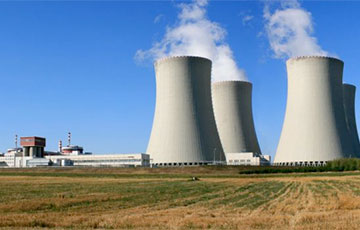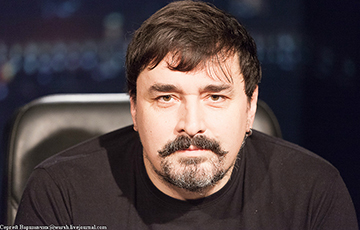Gerkus Gabartas: In Case Of Accident At NPP, Belarus Will Only Recompense One Thousandth Part
- 27.02.2020, 16:15
- 2,181

Associate Professor of Comparative Law drew attention to the aspect of damage compensation in the event of an accident at the Belarusian NPP.
During the first congress of the Movement Against the Astravets NPP, Herkus Gabartas, associate professor of comparative law at the University of M. Römeris, spoke in the Lithuanian Parliament, a Charter97.org correspondent from Vilnius reports.
In his speech, Garbatas drew attention to the aspect of damage compensation in the event of an accident at the BelNPP, if it is launched.
In his speech, the associate professor of comparative law recalled that choosing a site for the construction of the Astravets NPP violates the international law - atomic facilities cannot stand closer than 100 km away from large settlements, while the distance from Astravets to Vilnius is only 45 km.
“Even if, hypothetically, the Astravets NPP passes all stress tests, it still cannot be safe because of the choice of site,” Gabartas emphasized.
Another aspect worth paying attention to is the provisions of the Vienna Convention on Civil Nuclear Liability in the event of an accident of 1963. Both Lithuania and Belarus are members of the convention. Another issue is the amount of compensation for nuclear accidents. The Convention permits the establishment of a maximum amount of compensation for nuclear accidents - in the case of Belarus, it is 360 million euros.
“The liquidation of the Chernobyl accident cost 700 billion. That is, the Belarusian authorities declare that if the accident happens at the Astravets NPP, not all the damage will be compensated, but only a thousandth of it,” the associate professor of comparative law said.
Gerkus Gabartas added that at the time of the adoption of the Vienna Convention on Civil Nuclear Liability, nuclear energy was a new area, but now the future lies in green energy.
“Many say that electricity from the Belarusian NPP will be cheap. And how can it be expensive if we initially agree with the fact that Belarus may not be responsible for the nuclear damage, that the Astravets NPP may not actually bear responsibility for the damage done?” the associate professor of comparative law asks the question.
In addition, the Convention determines that disputes are resolved by the courts of the country in which the nuclear facility is located, and not which was damaged by the accident.
“In the event of a tragedy, we will have to seek the truth in the courts of a neighboring country. This principle can be effective in states where there are independent courts and the rule of law. But are we sure that today's Belarus is such a state?” said Gabartas.
The assistant professor added that now Lithuania has an ambitious strategy for switching to green energy until 2050.
“Why haven’t we yet dropped out of the obsolete convention, as Austria, Cyprus, Malta, Luxembourg did?” said Gabartas.
In mid-February, the first congress of the Movement Against the Astravets NPP was held in the Lithuanian Parliament. During the congress, the participants approved the text of the petition to the European Parliament, the collection of signatures for which goes until April 20. The petition contains five demands, among which is the issue of sanctions against Rosatom and other companies responsible for the construction of the Astravets NPP.










